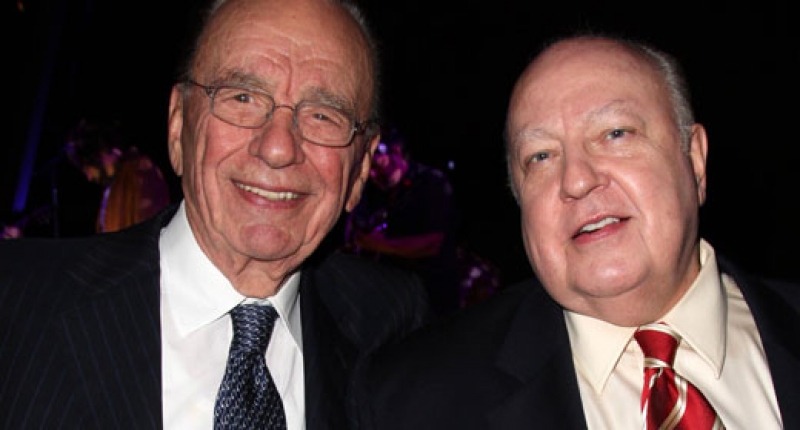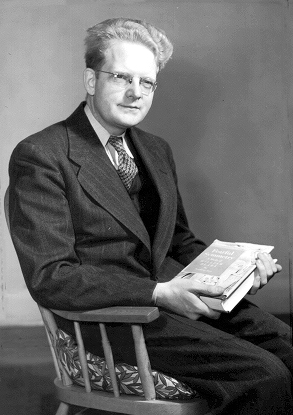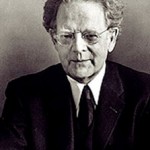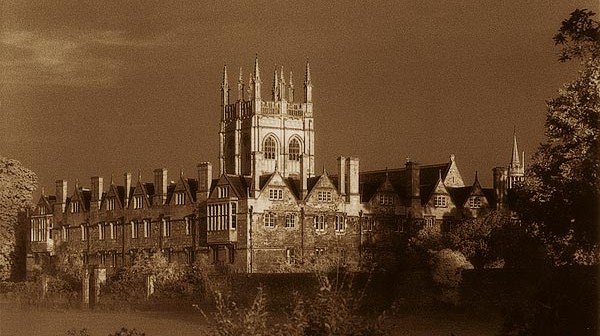“Censorship is an expression of weakness. Or confession.” Frye in Notebook 50 (CW 5, 397).
The censorship I have in mind is the censorship of the right, which manifests as under-reporting, misleading reporting, and non-reporting — not to mention completely made-up reporting, which these days seems to get an extraordinary amount of play during the shaping of public opinion phase of any debate. Outside of the closed partisan elite who either run or run with Fox News, I’d be surprised if many people who’d describe themselves as moderates or liberals would hesitate to say that this kind of right-wing censorship is now rampant in the U.S. and has significantly degraded both the quality of news reporting and the political debate that follows from it.
The turning point was perhaps the 2000 presidential election when all the major networks initially called Florida for Al Gore, which would have won it for him. But the first network to reverse that call for Bush and cast the outcome into doubt (which the other networks quickly followed) was Fox News, and the Fox employee who made the call just happened to be a Bush cousin. Meanwhile Florida itself was then governed by Bush’s older brother, Jeb, whose government agencies were packed with partisan appointments overseeing the conduct of the election in the state. We know what a mess that turned into. We remember the Brooks Brothers Riot (all Republican operatives), which shut down the recount of ballots in Broward County. We also remember the Supreme Court, stacked with conservatives who were supposedly avowed states’ rightists, nevertheless intervened to stop the state-wide recount of ballots ordered by the Florida Supreme Court, and who then deliberated while the clock ran out, and issued a decision giving the presidency to Bush so legally dubious that the court itself declared that this particular decision applied exclusively to Bush v Gore and was not to be considered precedent in future cases. That’s how Gore’s presidency was stolen. It’s how we got eight nightmare years of Bush — not to mention his nightmare legacy, including the Deepwater Horizon disaster which is the result of years of gutted regulations overseen by impotent or corrupt regulators who took their cues from the oil industry.
But let’s turn to Canada. If Sun News does not get a license from the CRTC, does that constitute censorship? No. Because free speech is not the freedom to repeat whatever noxious lies you want to suit your particular political agenda. Free speech ought always to be responsible speech in the public sphere relating to matters of public interest, and that is why we regulate it with broadcast standards. That regulation has served us well. We’ve been spared the insanity of the U.S. example, for starters. Canada’s use of regulation in fact seems enviably effective and efficient generally. We are, for example, the only major industrialized nation not to have experienced a single bank failure during the recent financial markets meltdown.
The Sun News people, whose admiration for all things American is so complete that they openly say they want to establish a Canadian Fox News, may wish that we did things the American way. But, no, sorry, uh uh. It’s the laws and regulations of Canada that apply here. We can enumerate good reasons for this, not least being our possession of a public discourse that is not an open sewer and does not skew public opinion by way of lies and bullying and government-sanctioned misbehavior of oligarchical interests that regard the general public as little more than a source of cheap and expendable labor with minimal legal rights to defend itself.
Folks, if you are middle class, your after-tax income has remained static for the last 30 years. All of the wealth generated by your productivity for a generation has gone to the top 5% of the population, and most especially the top 1%. This elite class accomplished that by hijacking government to make it serve corporate rather than public interests. Now they tell you that this new reality is the reality you have to live with, whatever the consequences.
We don’t yet have a deeply entrenched American-style plutarchy in Canada. But it’s hard not to believe that if Harper gets a majority government and a Fox News North, both journalism and the political process will become much worse for it. Just look at the Americans. And then consider what we’ve achieved. We have health care that costs just half what the Americans need to deliver it inadequately, not to mention a decent social safety net that does not allow people to be reduced overnight to helpless poverty. This is not anything to be compromised by a brutish and degraded public discourse.






